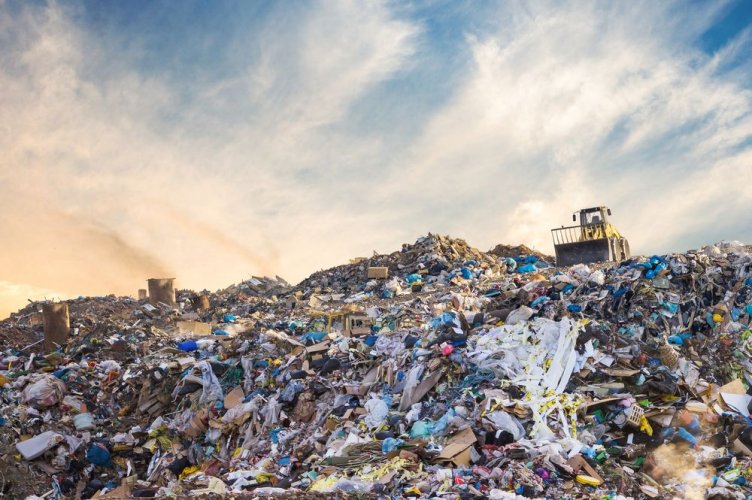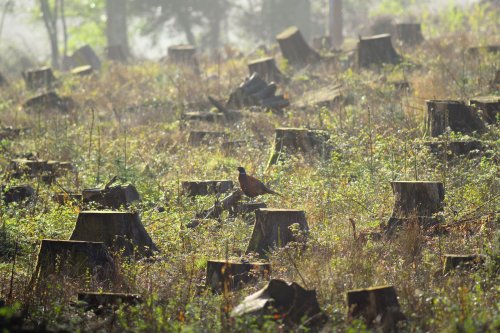In Ukraine, due to the long-term lack of economic incentives and progressive legislation, the number of illegal landfills is increasing, and the shadow business is making money from waste disposal thanks to 9 schemes.
According to experts, it is profitable for landfill owners to charge money for disposal and not process waste, because it creates an opportunity to earn money from garbage, reports NV.
It is noted that about 7% of the country's territory is occupied by landfills. Ukraine has 5,700 legal landfills and landfills with a total area of almost 8,000 hectares, of which:
- 162 – already overloaded;
- 693 – do not meet environmental safety standards;
- out of 2,197 landfills requiring reclamation, only 258 were actually remediated.
In addition, according to the estimates of ecoactivists, there are 33-35 thousand illegal landfills, the number of which increases every year.
"Every year in Ukraine, 10-11 million tons of garbage are thrown away. 3-6% of them are recycled, 1-2% are burned. The rest is taken to landfills," said Kostyantyn Yalovy, ex-chairman of the Kyiv City Council's Standing Committee on Environmental Policy.
According to experts who are familiar with the market of garbage removal and disposal, there are schemes that allow generating funds that are not subject to official accounting. Most of the schemes are possible due to the fact that this segment is controlled by local governments.
Examples of corruption schemes:
- informal sorters (as a rule, people from vulnerable categories) live and work at landfills, who select raw materials for secondary processing, which are then sold to "lookers" behind the landfill;
- when conducting tenders for the purchase of equipment and containers, the prices are inflated, because most of the enterprises participating in the market are communally or state-owned;
- when tenders for the removal of municipal waste are held, bribes are offered to local authorities or there is a change in the management of communal enterprises to people close to local officials;
- receiving payment from local self-government bodies (LGUs) for the transportation and storage of waste at landfills, but at the same time garbage is thrown out in forest strips. The difference is shared between all participants in the process;
- bribes for the lack of inspections of closed areas where garbage accumulates, or landfills, which according to documents are already full, but continue to accept garbage;
- Local government independently determines the conditions for determining the service provider who can hire a co-performer. It is impossible to challenge these conditions and the choice itself;
- the tariff for the waste management service is determined by the service provider and approved by the local government, i.e. the provider must negotiate with the local government regarding the tariff. A vivid example happened in Sumy – the mayor Oleksandr Lysenko and the head of the housing department demanded from the executor bribe to approve an economically justified tariff for the service;
- the fee for the waste removal service includes a separate fee for subscriber service. The tariff for this service varies in different communities from UAH 1.5 to UAH 5.5 per subscriber per month. Some performers use the service of third-party companies. Involvement of a chain of several contractors allows you to increase the tariff for the removal of household waste by 20-30% at the expense of the subcontractor's profit;
- the outdated form of measurement (cubic meters) gives many opportunities to manipulate the volume and make money from it. For example, waste collection is in cubic meters, and disposal is in tons. In different communities, you can see a different ratio between a ton and a cube. In addition, the accounting is not public and it is impossible to assess the reality of the services for which the OMS pays.
The article emphasized that in July 2023, the new Law No. 2320-IX "On Waste Management" entered into force. In particular, the document regulates the concept of raw materials that can be extracted from waste. This should make recycling an attractive investment. However, this law is a framework and requires a number of additional acts, in particular the law "On packaging and packaging waste", which should introduce extended responsibility of producers.
It is noted that for real changes in the sector, significant investments and revision of tariffs for the population are required.
Earlier, EcoPolitic wrote, that in Ukraine, discussions have begun on changes to the Tax Code in order to extend the eco-tax on burial and disposal of waste. This should stimulate the reduction of direct landfilling and encourage the increase of volumes of sorting and recycling.
Earlier, EcoPolitic analyzed what has changed in the field of waste management with the entry into force of Law No. 2320-IX "On Waste Management" and whether Ukraine will be able to overcome the accumulation of garbage.





